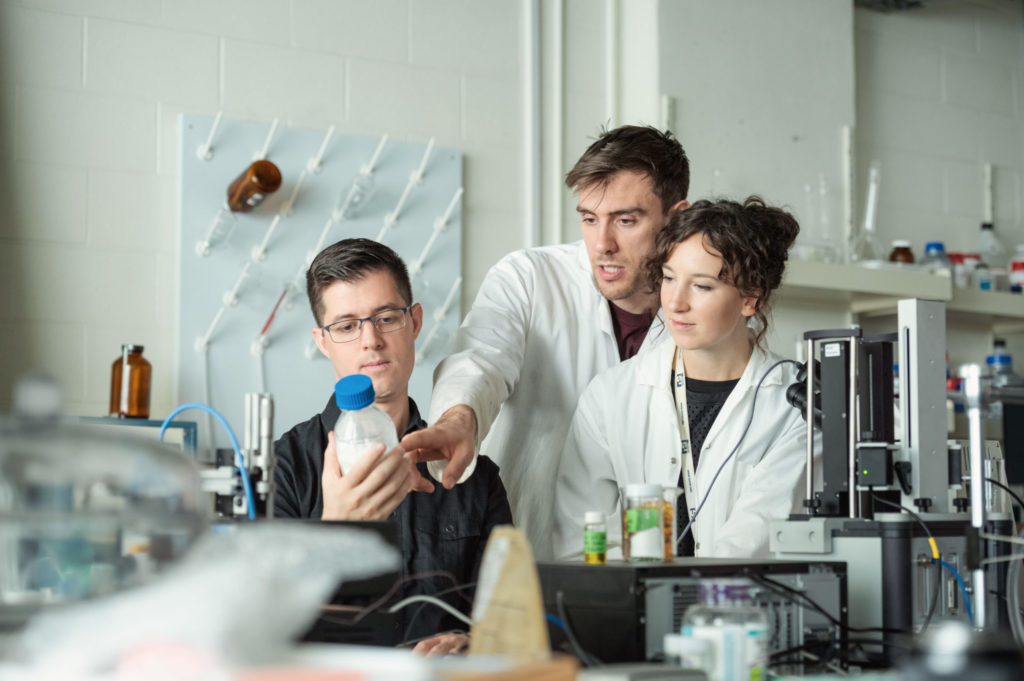
If space is the final frontier, it’s food that will get us there in good shape, and UBC researchers are making sure that our food will be up to the task. Dr. John Frostad, Assistant Professor in Chemical and Biological Engineering who studies the science of food, leads a team that is creating new ways of encapsulating omega-3 fatty acids so that they can go the distance.
Omega-3 is essential to mental sharpness. Even a couple of days without omega-3 in our diets may dull our brains and have us feeling less than our best. However, our bodies cannot produce it naturally so we must find it in the foods we eat, such as fish, flaxseed, or often by taking supplements.
“For astronauts and others on space missions, the difficult part is ensuring that omega-3 stays fresh and viable in whatever form—capsules or liquid—it is stored in,” explains Dr. Frostad. “The shelf life of most omega-3 capsules is around two years, but space missions can go for longer than that and they must be self-sufficient. You can’t do a grocery run every couple of months. Studies also show that expired omega-3 supplements can have carcinogenic properties, so the stockpiles that you do have should stay at their absolute best.”
If the team succeeds, their work could influence how fats are packaged into foods for space missions.
Dr. Roxanne Fournier, a postdoctoral researcher in food science who studies the effects of spaceflight on biological systems and ways of improving food and nutrition for crewed spaceflight, explains: “Foods that astronauts bring into deep space often need to be rehydrated, and the resulting texture can be watery or mushy and not very nice.”
Although NASA’s touted crewed Mars mission is the original impetus for the research, Dr. Frostad and team also sees potential applications right here on Earth.
“Increased shelf life has clear advantages for consumers who can safely store food longer as well as grocery stores that can stock products longer,” says Dr. Frostad. “The current war in Ukraine has really shaken supply chains for many items, so products with longer shelf lives could help lessen the negative impacts of such events in the future.”
To read the full story, please visit the Faculty of Applied Sciences website.
Through Strategy 9: Knowledge Exchange, we are building expertise in knowledge exchange to help researchers across disciplines find and establish connections with community, corporate and international partners